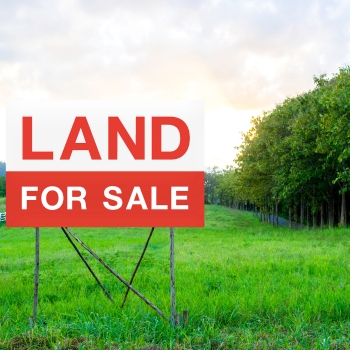|
Structure |
How Profit is Taxed |
CGT Discount Y/N |
Tax Rate |
|---|---|---|---|
|
Individual (investment) |
Added to personal taxable income |
yes - 50% if held longer than 12months |
Marginal Rate - up to 45% |
|
Company (development or trading entity) |
treated as business income |
No |
30%-25% based on entity |
|
Small Business CGT Consessions |
Can reduce or exempt the gain |
Yes -50% active asset reduction: plus retirement exemption/rollover |
varies |
Tax Implications on the Sale of Land

Whether you’ve owned the land for years, are selling after a short-term investment, or thinking of buying land for business, understanding how the ATO treats land sales for tax is essential. With the right planning you can minimise tax, and make the most of your sale proceeds.
Is the Sale Treated as Capital or Income?
The way the ATO taxes your land sale depends on the circumstances:
- Capital gains tax (CGT): If you purchased the land as a long-term investment and are now selling, the proceeds are usually subject to CGT. You’ll pay tax on the difference between the sale price and your cost base (what you paid plus related expenses).
- Ordinary income: If you buy and sell land with the intention of making a profit, or if the sale is part of a property development activity, the ATO may treat the proceeds as income.
- For individuals, this profit is added to your assessable income and taxed at your marginal tax rate.
- For companies, the profit is taxed at the applicable company tax rate (generally 30%, or 25 % for base rate entities that meet turnover thresholds).
Capital Gains Tax Basics
If your land sale is subject to CGT, here’s what you need to know:
- Cost base: Includes the purchase price, stamp duty, legal fees, survey costs, and improvements made. Selling costs like agent commissions and legal fees are also included.
- Discounts: If you’ve held the land for at least 12 months, you may qualify for the 50% CGT discount (for individuals and some trusts). Companies are not eligible for the discount.
Pre-CGT assets: Land acquired before 20 September 1985 is exempt from CGT.
Small Business Captial Gains Tax Consessions
Small business CGT concessions:
If the land was used in your business, you may qualify for generous small business CGT concessions, provided your turnover and net assets fall under certain thresholds. These can include:
- 15-year exemption (full tax-free gain if retiring and owned for 15+ years)
- 50% active asset reduction
- Retirement exemption (up to $500,000 tax-free if contributed to super under age 55)
- Rollover relief into a replacement active asset
Example – Ben's Yard:
Ben owns a yard he has used for his plumbing business. He sells it and makes a $400,000 capital gain. Because the land qualifies as an “active asset” and his business turnover is under $2 million:
- He applies the 50% active asset reduction, bringing the gain down to $200,000.
- He then applies the retirement exemption, contributing the amount into super.
- Result: Ben pays no CGT on the sale.
- Foreign residents: May be subject to capital gains withholding rules.
Selling an Investment Block v’s Selling a Development Block
Example A: Selling an Investment Block
Mary bought a block in 2005 for $200,000. Over time, she spent $20,000 in costs. In 2025, she sells for $600,000.
- Cost base: $220,000
- Sale price: $600,000
- Capital gain: $380,000
- Taxable capital gain after 50% discount: $190,000
Mary adds $190,000 to her taxable income and pays tax at her marginal rate.
Example B: Selling a Development Block
Tom bought land in 2020 for $500,000, intending to subdivide. He spent $200,000 on approvals and infrastructure. In 2025, he sells the subdivided lots for $1,200,000.
- Sale proceeds: $1,200,000
- Less purchase + development costs: $700,000
- Profit: $500,000
The ATO treats this as ordinary income because Tom was carrying out a property development activity.
- If Tom sells as an individual, the $500,000 is added to his personal income and taxed at his marginal rate.
- If sold through a company, the $500,000 would be taxed at the applicable company tax rate.
Practical Tips for Land Sellers in 2025
- Clarify your intention when purchasing land - this drives tax treatment.
- Plan the timing - holding more than 12 months can qualify you for CGT discounts.
- Check GST obligations - development activities may require registration.
- Review exemptions and concessions — your home or small business use may provide significant relief.
- Seek professional advice. Structuring your sale correctly can save thousands in tax.
TAX OUTCOMES AT A GLANCE
Need Advice? Let's Chat.
At Cashflow Financial, our team helps clients plan ahead, use the right concessions, and keep more of their hard-earned profit. If you’re thinking about selling land in or want to understand how the rules apply to you, let’s chat.